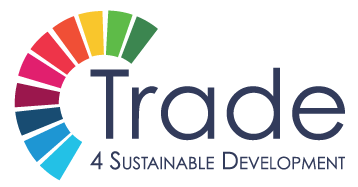The EU has published a series of legislative proposals (e.g., EU Deforestation Regulation) and initiatives (e.g., Corporate Sustainability Due Diligence Directive) aimed at influencing global value chains and the responsibility of companies operating outside the EU. These legislations and initiatives reflect the EU’s commitment to promote corporate social responsibility, sustainability, and human rights in international business practices. The EU is actively working to ensure that its companies involved in global value chains adhere to higher standards of sustainability, human rights, and corporate social responsibility.
The EU aims also to use its trade agreements as tools to pursue sustainable development and encourage trading partners to uphold and improve environmental and human rights standards in their own countries as well as to mitigate climate change globally. Sustainable development is a key element in EU trade agreements, reflecting the EU’s commitment to promoting environmental, social, and economic sustainability in its trade relations. In the EU’s latest bilateral trade agreements, the aspects of sustainable development such as commitments to environmental and labor standards are taken into account more comprehensively, in addition to the wide-ranging provisions to promote economic prosperity, enhance competitiveness, and strengthen economic and diplomatic ties with partner countries.
The EU has been a particularly enthusiastic signatory of bilateral trade agreements. The EU already has more than 40 individual free trade agreements with different countries and regions. Agreements have been concluded with, for example, Canada, Japan, Mexico, Singapore, South Korea, Switzerland, Great Britain, Vietnam, and recently reached a free trade agreement with New Zealand. Negotiations with the Mercosur countries (Argentina, Brazil, Paraguay, and Uruguay) were completed in 2019, but EU member countries have not ratified the agreement due to environmental concerns related to the deforestation of Brazilian rainforests along with issues related to human rights, indigenous rights, and labor rights in Mercosur countries.
Preferential trade agreements compensate for the inertia of the WTO’s multilateral system
Much of the trade liberalization in the last 30 years is based on bilateral and regional trade agreements. In the early 1990s, just over 100 preferential trade agreements (PTAs) had been concluded, while at the end of 2020 there were already more than 700 PTAs in force. Both developed and developing countries have been strongly involved in concluding bilateral and regional free trade agreements. Negotiating bilateral agreements is easier, faster, and encounter less political resistance compared to reaching a consensus in the World Trade Organization (WTO) on issues with multilateral agenda. Bilateral agreements can reduce trade barriers not only at the borders, but also facilitate foreign direct investment (FDI), liberalize services, and protect intellectual property rights. In addition, bilateral agreements give large developed countries more power in negotiating with trade partners and thus getting special issues accepted, which may not be possible under a multilateral trade agreement with the WTO. For example, the EU has significantly succeeded in expanding the international protection for its specialty foods under geographical indication (GI), such as Parma ham and Parmigiano-Reggiano cheese.
After the Uruguay Round agreement in 1994, not much has progressed in terms of multilateral trade liberalization because the WTO has not succeeded in continuing to dismantle trade barriers. On the contrary, bilateral and regional trade agreements have increased dramatically since the mid-1990s and have become one of the hallmarks of globalization, partly reflecting the complex problems faced by the multilateral trade negotiations under the WTO.
The failure of the WTO with the Doha Round of negotiations initiated in 2001 has weakened the credibility of the multilateral trade system and its effectiveness in addressing global trade issues. Developing countries were hopeful that the Doha Round would lead to improved market access for their products in developed countries. The failure to reach a comprehensive agreement means that many trade barriers, including tariffs and non-tariff measures, have not been significantly reduced, limiting the export opportunities to lucrative markets. Moreover, rising trade tensions and protectionist measures can further hinder the export capabilities of developing countries and disrupt global trade flows.
Geopolitics threatens to fragment the world into blocks
Geopolitics together with rising trade tensions and protectionist measures are currently having a particularly strong impact on international trade policy. Russia’s invasion of Ukraine has eroded the foundation of international cooperation and threatens to divide and fragment the world into blocs. The EU, United States, China, India, and Russia are seeking their roles in the new situations, therefore rules-based and open trade via the multilateral system is under intense pressure. Recent data on global trade as well as capital and labor flows indicate a slowdown in globalization, therefore the future of globalization is highly uncertain now. New concerns about national security and the exposure of supply chains to geopolitical risk instigate diversification from “non-friendly” countries and export restrictions to halt China’s technological development. However, these new policies will likely hinder global growth, innovation, and poverty reduction especially in countries from Sub-Saharan Africa with the fastest-growing population.
Ellen Huan-Niemi and Jyrki Niemi
Natural Resources Institute Finland (Luke)


Leave a Reply